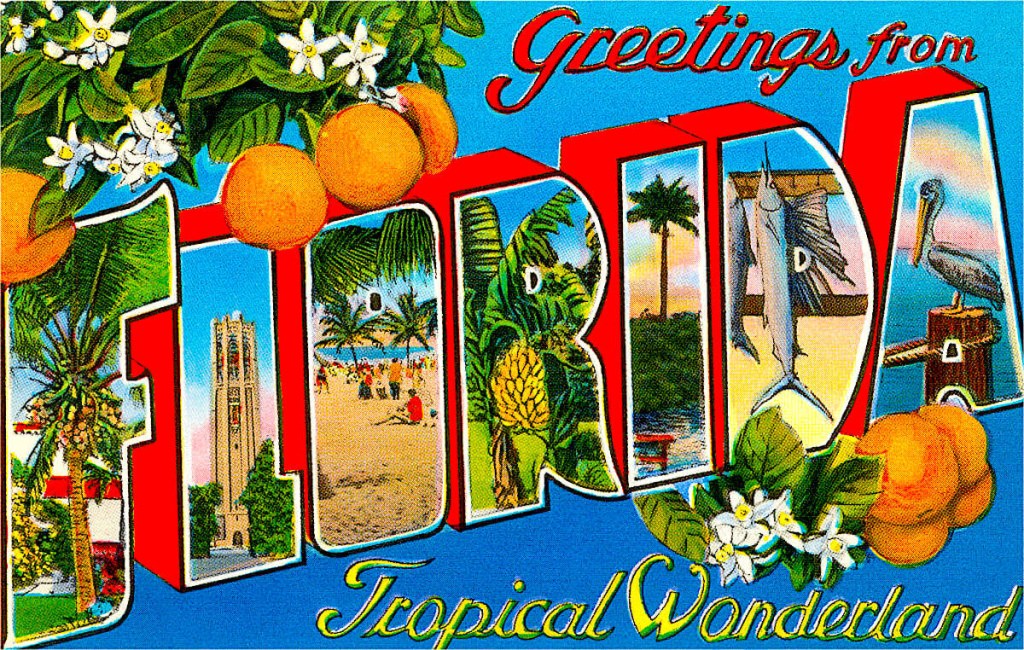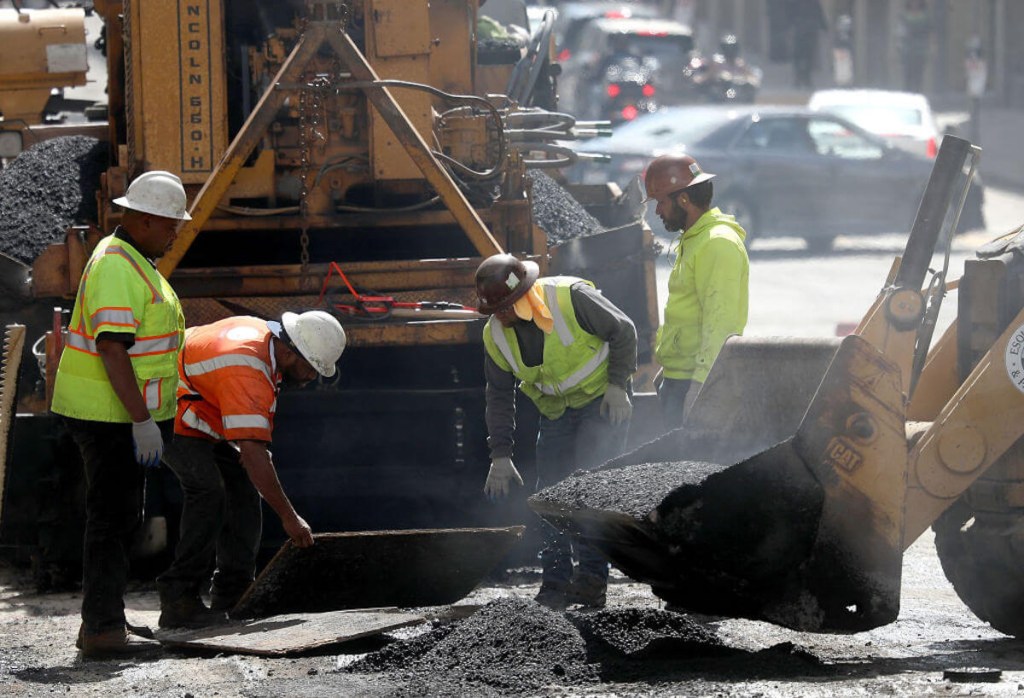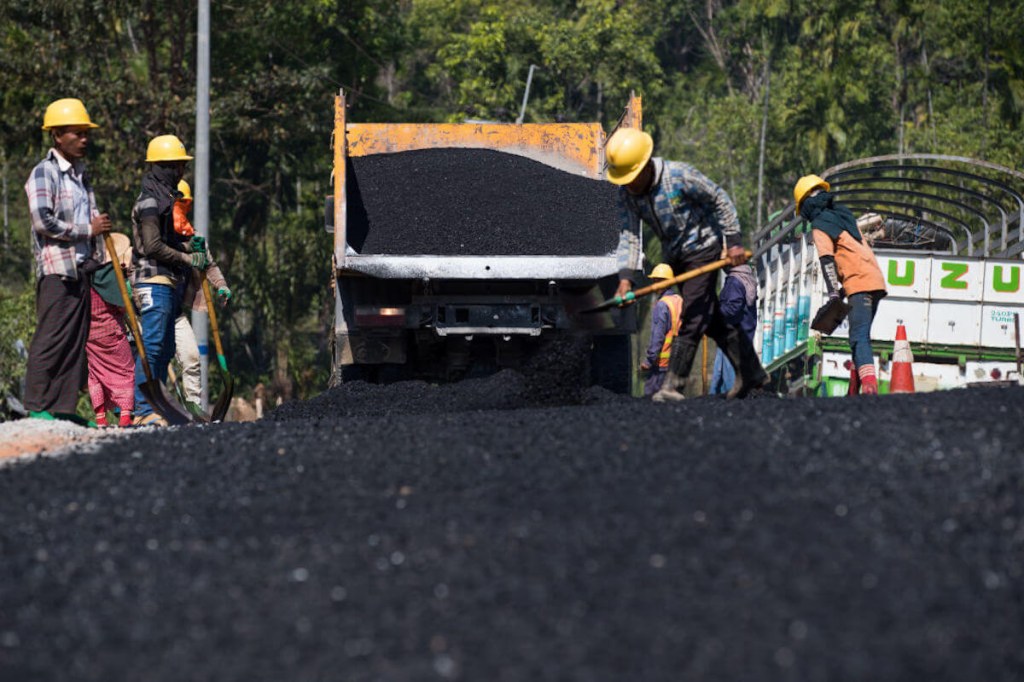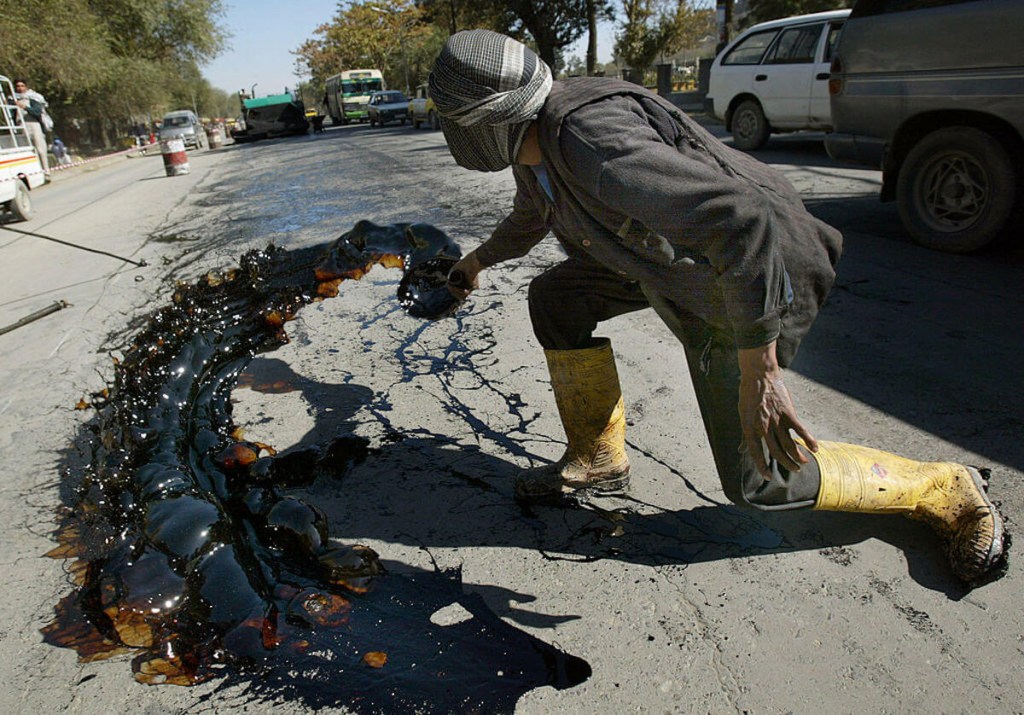
Report: Radioactive Pavement Material Approved For Florida Roads
Talk about dangerous roads! Things are getting weirder by the hour in Florida after its legislature just passed a bill allowing for radioactive material to be in road paving. Yes, it’s true. Why use inert materials abundant throughout Florida when you can use radioactive phosphogypsum instead? Let’s hope that anti-Disney Governor DeSantis is also anti-radioactive Ron.
What is radioactive phosphogypsum?

This makes no sense, but here’s what we know. First, phosphogypsum is radioactive. It’s a byproduct from fertilizer manufacturing, which is essentially radon gas. But there are other types of radiation in phosphogypsum.
These include uranium, thorium, and radium. So it is a radiation salad of bad. But it must not be toxic if Florida wants to make roads and highways with the stuff, right? No, according to the EPA, the material causes cancer. It poses great risks to highway workers, general public health, and the environment. So it is a safety and health issue above anything else
Is radioactive phosphogypsum used for roads now?

But in 2020, the Trump-era EPA approved its use for road construction. The Center for Biological Diversity and other public health groups immediately filed a lawsuit to block Phosphogypsum’s use. The following year, the Biden EPA reversed this decision.
Florida has 25 of what are called “gypstacks” sprinkled around the state. They take up hundreds of acres, each stacked hundreds of feet high. A number of them have collapsed, causing sinkholes and spills. Florida stores more than a billion tons of it in these gypstacks.
According to the Center for Biological Diversity, Florida has been subject to major sinkholes over the years at these gypstacks. The collapses “have released millions of gallons of process wastewater and an undetermined amount of phosphogypsum into the Floridian aquifer.” So the bad news for Floridians is that they’re already being exposed to the radiation.
Doesn’t Florida know phosphogypsum is radioactive?

Could just a little bit more really hurt anything? Only if you understand that the material contains toxic elements like heavy metals and radionuclides. So these would be radioactive roads. Even with that understanding, it is still used in certain places as a fertilizer, in brick and cement creation, and for road construction.
“The only way Gov. DeSantis can assure Floridians he’s serious about protecting them from this radioactive waste is to veto this reckless bill,” Florida attorney Ragan Whitlock told Yahoo News. “This dangerous plan to pave Florida’s roads with toxic phosphate mining waste is an egregious handout to an industry that has a lengthy history of damaging the environment and putting public health at risk.”
What the legislature is suggesting is that the Florida Department of Transportation conducts a feasibility study. But, it doesn’t really need to do that, since it is more feasible because it’s probably a cheaper material. After all, how much is radioactive material worth?
Who or what is pushing its use for roads?

Rather than a feasibility study, maybe it could look at the volumes written about the dangers of using the material. Because feasibility studies mostly look at how expensive or inexpensive it is to use or do something. Most would agree, looking at the dangers it creates is far more important.
“The fast-tracked ‘study’ contemplated by this industry-sponsored bill would create harm because that study involves a full-scale road project that would have very real, very detrimental impacts to the environment and health of Floridians, especially road-construction crews,” says climate attorney Rachael Curran.
But for the fertilizer industry, which is responsible for disposing of the radioactive material, it serves two purposes. First, it begins to satisfy that responsibility, and two, it creates a new revenue stream. So it’s a win-win for it.



